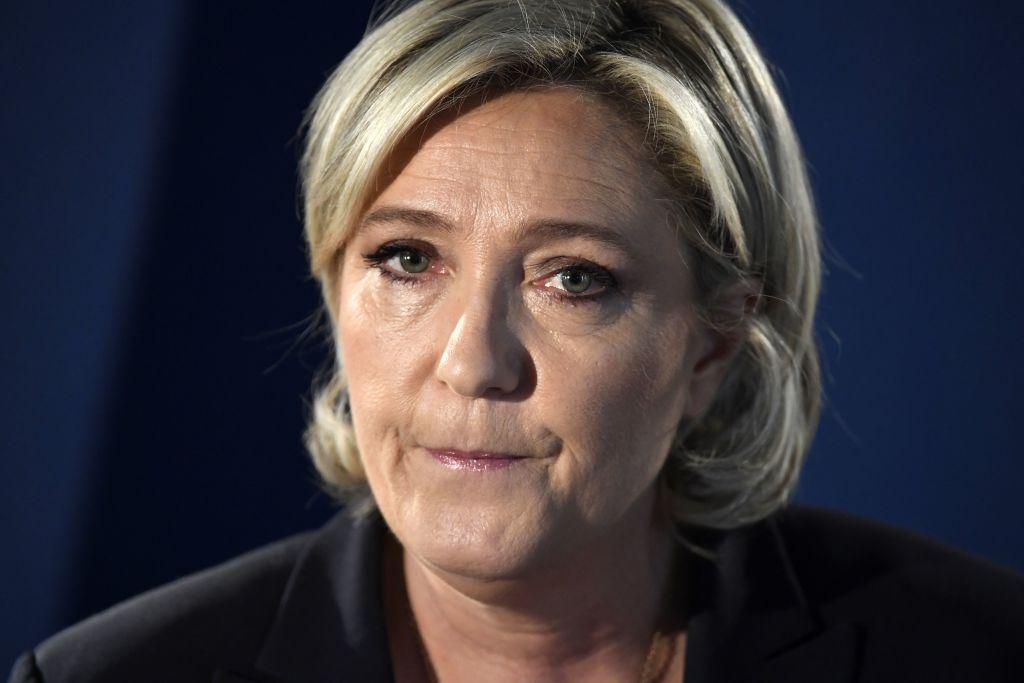Front National begins to tear itself apart after Marine Le Pen's loss to Macron
Far-right candidate's main adviser threatens to quit, ending rough first week after election defeat

Marine Le Pen’s Front National has been rocked with internal feuds and disputes, leaving the party at crisis point less than a week after the far-right candidate was defeated in France’s presidential election.
Ms Le Pen attempted to rally broad support in the final leg of a virulent campaign, which saw her going head-to-head with newly elected president Emmanuel Macron. But days after the vote, divisions within the Front National have burst into the open.
Meanwhile, the newly elected president Mr Macron is preparing for his inauguration ceremony at the Elysée Palace on Sunday, when he will officially replace outgoing president Francois Hollande, who will hand over his powers and France’s nuclear launch code.
Following its election defeat, the Front National is searching for the road to change, which could encompass some of its members' contrasting opinions over ‘Frexit’, gay marriage and economic liberalism.
But the party suffered a new jolt on Friday as the party's Vice President Florian Philippot, one of Ms Le Pen’s main advisers and significant influencer of Front National's direction, said he would quit if the it gave up its policy to leave the eurozone.
Speaking to French radio RMC, Mr Philippot said: “I am not here to keep my position at all costs and to defend the opposite of my deep convictions.”
Mr Philippot’s comments come at the end of a tough week for the Front National, which had to swallow a lower-than-expected 33.9 per cent of the votes in Sunday’s election. On Wednesday, the party’s rising star Marion Marechal-Le Pen (who is also Ms Le Pen’s niece) announced she was temporarily retiring from political life.
The 27-year-old, who stands for the Front National’s more traditional and conservative views, was also considered a potential successor to the party’s leadership.
Reacting to the party’s chaotic week, French political analyst and far-right expert Jean-Yves Camus told The Independent: “In the last week, everything has been surprising.
“There is discontent and disappointment regarding the election results. The party is going through an extremely difficult time.”
Mr Camus said Ms Marechal-Le Pen distanced herself from the party because she knew she would not be able to reform it from within.
“The party is gridlocked by the tandem of Marine Le Pen and Florian Philippot,” he said.

But while tensions are mounting, the Front National has entered its next campaign challenge for the local elections in June, when the party desperately needs a good showing.
If Ms Le Pen fails achieve a good result, her leadership could be contested. Mr Camus said then no one could predict the direction the party would take.
On the night of the election results, Ms Le Pen said she will work to “profoundly renew and transform” her party in order to “constitute a new political force,” which would be given a new name.
If the move to change the party’s name is an attempt to expunge the party’s image of its founder Jean-Marie Le Pen's Holocaust denial and racists views, for Mr Camus this will not be enough.
“The attitude of the Front National members towards their own party’s name is surprising, because the young voters do not remember Jean-Marie Le Pen's times. Whether it takes a new name or not, I don’t think the party has changed that much – what matters are its policies,” he said.
Although the question of the Front National’s identity has been postponed until its autumn conference to focus on the local elections, this week’s events show that the debate has already gripped the party.
Ms Le Pen said she wanted to widen the movement to all “French patriots”. However, her failure to rally in the second round of the election, beyond sovereignist candidate Nicolas Dupont-Aignan who received less than five per cent of the vote, shows that the Front National continues to be isolated from the rest of the political sphere.
Mr Camus told The Independent: “The Front National is a party which has a solid base of voters and is able to disrupt the political game, but it is doomed to remain in the opposition as long as it is not able to make alliances with factions of mainstream right-wing parties.”
Despite the strife, which has seized the party, Marine Le Pen collected a record number of votes (10.6 million), half of those collected by Mr Macron. She hailed the party as the main opposition to Mr Macron’s incoming government.
Mr Camus said he did not believe the party would split, because there is not enough space on the political spectrum for more than one movement on the far-right – “but we are not finished being surprised,” he added.
On 11 and 18 June, French voters will once again head to the polls for two rounds of voting, in order to elect the country's 577 members of parliament.
Join our commenting forum
Join thought-provoking conversations, follow other Independent readers and see their replies
Comments
Bookmark popover
Removed from bookmarks